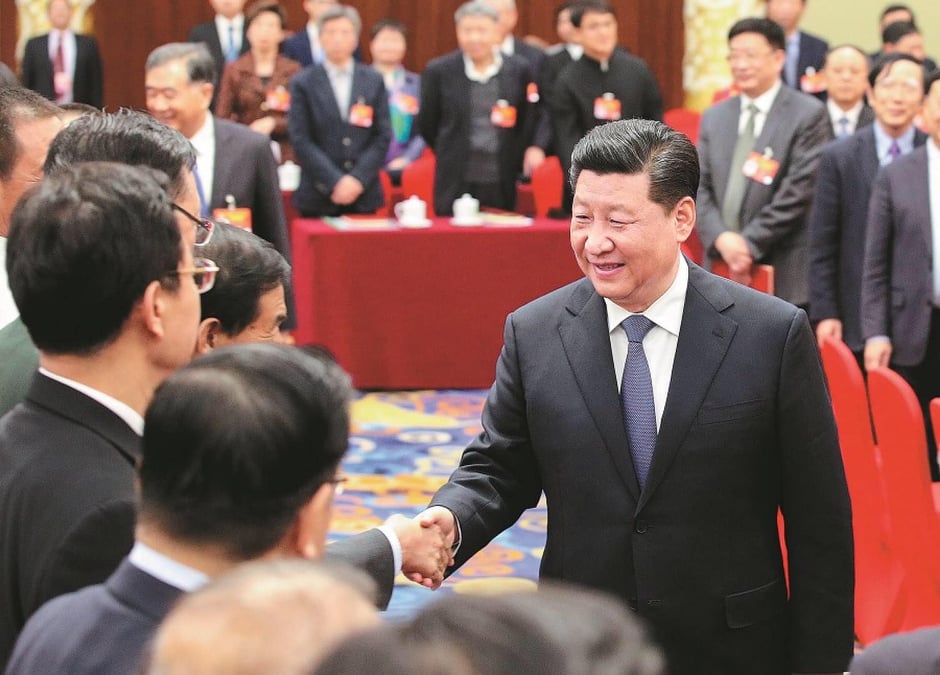China’s two sessions offer many things for developing countries, BRI partners

Beijing– In line with ongoing rapid and massive developments in almost all spheres, the government of China has offered many development schemes to its neighbours, developing countries, Belt and Road Initiative (BRI) partners, and beyond. Analysts say that Nepal is sure to benefit further from the spillovers of China’s development and the Chinese assistance in 2019. As a BRI partner and an immediate neighour of the world’s second largest economy, Nepal is expected to benefit much more from China on the basis of win-win cooperation for shared benefits.
Chinese Premier Li Keqiang made such announcements at the inaugural programme of the Two Sessions of the 13th National People’s Congress. Currently, the two sessions also known as the annual plenary sessions of National People's Congress (NPC) and the national committee of the Chinese People's Political Consultative Conference (CPPCC) are taking place. The two sessions held in the Great Hall of the People in every March is ending on 15th this month.
The ‘Two Sessions’ in China act like budget session of Nepal’s parliament. It sums up and reports the previous year’s experiences and announces the development plan's course ahead. “Two Sessions” also collects the advice of people from all walks of life and represents the fundamental interests of people, the members of the NPC also known as deputies have shared in a series of press conferences here in Beijing. The NPC in China is the apex organ of state power and is composed of deputies elected from the provinces, autonomous regions, municipalities directly under the Central Government, special administrative regions and the armed forces.
However, the CPPCC is neither a government agency nor a policymaking body but a group of political advisors from diverse backgrounds who are tasked with conducting political consultation, putting forward proposals on current affairs, discussing the government's work reports, and carrying out democratic supervision.
“We will seek coordination between China’s development plans and those of other countries along the BRI routes. Focusing on major projects, including infrastructure construction, and industrial-capacity cooperation, we will address key problems such as those related to financial support, investment environments, risk management, and security, to ensure cooperation produces more results,” Premier Li said while announcing the plans of cooperation for the BRI partners.
Likewise, Chair of CPPCC Wang Yang said that China would actively carry out exchanges of high-level visits, and create new ways of conducting diplomacy and people-to-people and intercultural exchanges.
The statements of the Chinese officials and leaders reveal that China’s focus on massive engagement with the BRI partners and neighbours for the greater good and shared benefits in line with the cooperation, coordination and promotion of bilateral relations to ensure long term stability.
In this backdrop, Nepal’s Ambassador to China Leela Mani Paudyal told RSS that Nepal should tap the aggressive development China has made in the recent decades adding that China’s move in infrastructure development and scientific advancement is highly impressive. “China is emphasizing in its peripheral markets including South Asia. If we could shift the economic centres of China’s focus areas in ours, it is going to be the most significant subject of benefit,” Ambassador Paudyal said.
Nepal needs to closely watch China’s priorities for the upcoming years and focus accordingly to reap further.
Similarly, the government of China is constructing 1700 km-long Chhengdu-Lhasa rail network and is completing it by 2023. “Our connectivity with China’s mainland would surely increase provided that we build the rail line in our territory. We need more preparations for taking benefits from China’s advanced rail network,” according to Paudyal.
Besides, government to government relations, many private Chinese firms could be lured in Nepal for their investments because the government of China is also expected to shift some of its sectors with over capacity in mainland. So Nepal can become a proper and closest destination for those as we have paucity of such areas including iron, steel and others for building our infrastructures. Since China is embarking for ensuring high-quality development and further deepening its reforms and opening-up policies to become a moderately prosperous nation in the offing, Nepal’s close ties and economic engagements would obviously benefit in regard to financing gaps and build up more infrastructures.
---


Leave Comment